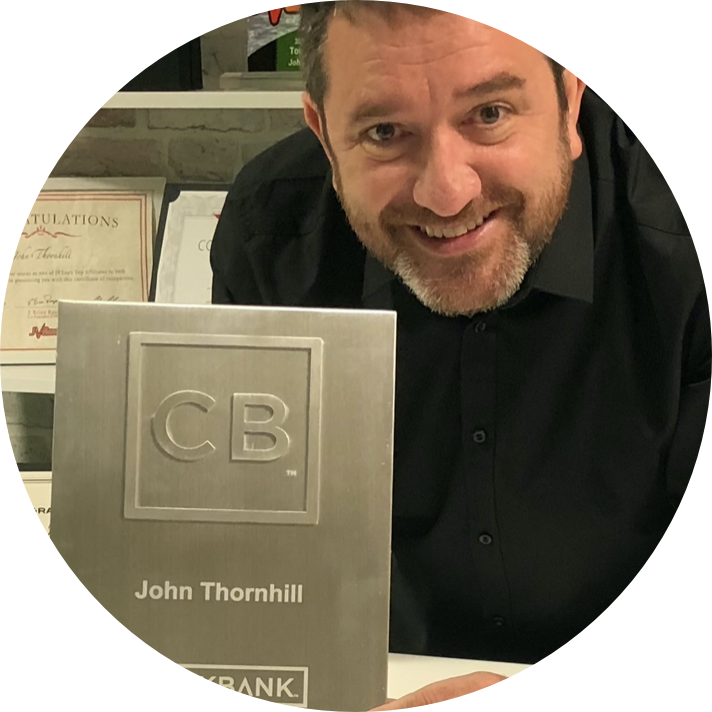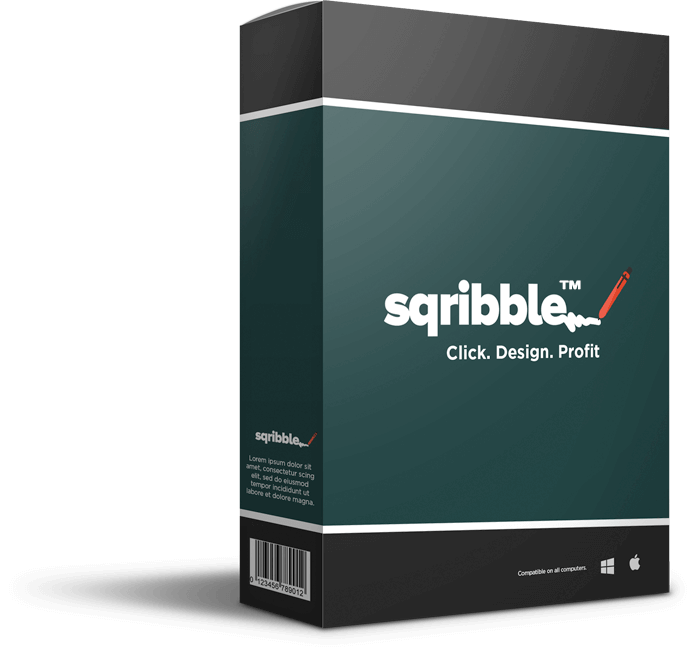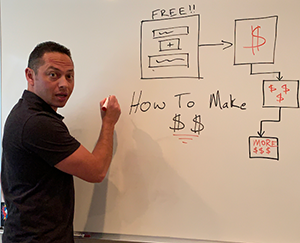Gain Freedom With The Hands Off CEO Blueprint written by John Jantsch read more at Duct Tape Marketing
The Duct Tape Marketing Podcast with John Jantsch In this episode of the Duct Tape Marketing Podcast, I interviewed Mandi Ellefson. Through her company “Hands-Off CEO”, she rescues agency owners from the daily grind, transforming million-dollar agencies into self-sustaining enterprises. With her expertise, she’s boosted hundreds of agencies to millions in revenue, attracting premium clients […]
Gain Freedom With The Hands Off CEO Blueprint written by John Jantsch read more at Duct Tape Marketing
The Duct Tape Marketing Podcast with John Jantsch
In this episode of the Duct Tape Marketing Podcast, I interviewed Mandi Ellefson.
Through her company “Hands-Off CEO”, she rescues agency owners from the daily grind, transforming million-dollar agencies into self-sustaining enterprises. With her expertise, she’s boosted hundreds of agencies to millions in revenue, attracting premium clients willing to pay 50-600% fees. As a former business exit advisor, she crafts exit strategies, adding up to five figures to clients’ net profit monthly so they can focus on growth. She shares her wisdom as a published author of
“The Hands-Off CEO: Triple Your Fees and Profitably Scale an Exceptional Consulting Agency that Grows Without You” and host of the Hands-Off CEO Podcast, helping consulting agencies triple fees and scale without less reliance on the CEO.
Key Takeaways
Questions I ask Mandi Ellefson:
[01:45] Tell us about the frustration you encountered earlier in your career, not being able to have a company run without you?
[04:47] How does the Scale to Freedom framework differ from other types of processes?
[08:20] Is a mindset shift a necessary step in undertaking this process?
[09:00] How do you balance working with a passion for the project and embracing the need to scale?
[09:13] Why are service businesses hard to scale?
[16:21] How do you help people differentiate between growth and scale?
[22:16] Where can people connect with you and obviously find a copy of the hands-off CEO?
More About Mandi Ellefson:
Like this show? Click on over and give us a review on iTunes, please!
Connect with John Jantsch on LinkedIn
This episode of The Duct Tape Marketing Podcast is brought to you by Porkbun
Go to ng24 to get a .BIO domain name for your link in bio page for less than $3 at Porkbun today.
Testimonial (00:00): I was like, I found it. I found it. This is what I’ve been looking for. I can honestly say it has genuinely changed the way I run my business. It’s changed the results that I’m seeing. It’s changed my engagement with clients. It’s changed my engagement with the team. I couldn’t be happier. Honestly. It’s the best investment I ever made. What
John (00:17): You just heard was a testimonial from a recent graduate of the Duct Tape Marketing certification intensive program for fractional CMOs marketing agencies and consultants just like them. You could choose our system to move from vendor to trusted advisor, attract only ideal clients, and confidently present your strategies to build monthly recurring revenue. Visit DTM world slash scale to book your free advisory call and learn more. It’s time to transform your approach. Book your call today, DTM World slash scale.
(01:03): Hello and welcome to another episode of the Duct Tape Marketing Podcast. This is John Jantsch. My guest today is Mandi Ellefson , and he went from a hundred thousand dollars in debt to multimillionaire status by revolutionizing consulting agencies through her company Hands-off, CEO e. She rescues agency owners from the Daily Grind, transforming million dollar agencies into self-sustaining enterprises. She’s also the author of a book we’re going to talk about today, the Hands-Off, CEO, triple Your Fees and Profitably Scale, an exceptional consulting agency that Grows Without You. So Mandy, welcome to the show.
Mandi (01:41): Thank you so much for having me again, John,
John (01:44): Since you put it in your bio. Let’s talk about the frustration perhaps that you felt in having a previous business that didn’t run without you necessarily to leading you to creating what you do for your life’s work now.
Mandi (01:59): Yeah. So can we tell about that experience? You’re saying that led?
John (02:02): Yeah. We want to hear frustration and embarrassment that every entrepreneur goes through.
Mandi (02:07): Yes, yes. There was definitely plenty of that and what it looked like as I was nine months pregnant and I had a 4-year-old daughter. My husband lives in a demanding graduate medical program. I had moved across the country. So you’re painting a picture of I had. It was a pretty challenging situation, right? Yeah,
John (02:23): Yeah,
Mandi (02:24): Yeah. And my business at the time, I was trying to close up shop for me to have maternity leave because it was not set up in a way where it could run without me at all. And that was a frustration just because I had managed another company before this. I was the manager and I was able to get this company to run without me as the manager. So I was pretty frustrated that I couldn’t do this within my own company. And weeks before I was about to give birth to my second daughter, all the stress of trying to make all these things work on my timeframe, it was so stressful and my health was breaking down. So I literally had my arms not being able, I couldn’t move them more than just a small amount, and I had to go and get some treatments. Thankfully, I was able to heal my arms from this, but this was not a good time.
(03:16): Just weeks before giving birth to my second daughter, and we could have used that income in our life. That was one time we really could have used it. And again, anyway, I had to shut the business down. But what that led me to look at what is actually stopping me from having this. So then I went out and I started talking to other entrepreneurs after I had my maternity leave, after I took that time and I took some time to slowly start back up to just, I wanted to make sure I got it right this time. So I started interviewing other people and I knew that if I could solve the problem for someone else, I could solve it for myself. So I just started helping other people because I knew I could break down the system and figure it out. I could reverse my engineer back into it because I’m pretty good at that.
(03:59): So I knew I’d be able to figure that out. And before I knew it, I started a consulting company. I didn’t mean to, but I started a consulting company because people asked me they wanted to pay me, help them with this, and I started seeing the patterns and the trends for what it takes to be able to take a service business, especially service businesses are very difficult to scale and remove yourself from. So I started seeing the patterns and I helped other people be able to solve this before I was actually able to solve it for myself.
John (04:26): So a lot of books consulting around this idea of scaling, making a business run without you really all come down to systems and process and operations. And I think you dive a little deeper than maybe there’s even, I’ve had Gino Wickman on the show, but EOS and Traction. How would you say that your system, which you call scale to freedom, is that right framework? How would you say that you go beyond the typical systems and processes?
Mandi (04:56): Right. So EOS and other frameworks, they’re great. They’re really effective and they can help you bring your company to a level of order. But here’s the thing is I talk to CEOs almost on a weekly basis who have implemented all of that and still have a company that’s not profitable. They may even say it’s profitable. Oh yeah, well, you know what, we’re profitable. But what they don’t tell you is that they’re not taking anywhere near a market rate salary for what they would get paid somewhere else. So they’re actually losing money every year if you look at it that way. So the thing is, those frameworks, it helps you organize a working and functional business model, but it’s not a business model and it’s not a profit model, and it’s not your pricing model, and it’s not the structure for what agreements you create with your team, with your clients. It’s not going to give you the positioning in the market. It’s not going to tell you who your profits fleet spot client is, who’s going to pay you the most. It’s going to contain those things, but garbage in, garbage out. So you to get that right first if you want to have a sustainable company.
John (06:01): You mentioned something in the very beginning that you were able to manage this company to run without you, but when you, maybe it was your own business, the CEO, and I’m curious, there’s if there’s something like instructive in that idea, right? It’s like as the CEO, you’re very married to what it’s doing, you’re emotionally attached maybe, and in some cases it’s hard to step back and give yourself the distance that it requires to properly delegate and let your people do the work that they’re there to do. Do you think there’s something, I guess I’m really talking about mindset probably. Is mindset a key role to even start embracing this idea?
Mandi (06:39): Absolutely. And there’s two different aspects of it, and I’m glad you brought it up because there is a system and then there’s a mindset. And here’s the thing is you can build the system all day long, but unless you have a corresponding mindset, then the system is useless and you won’t be able to actually use it and you won’t be able to let go. So that’s one of the things that I’ve observed too with our clients is that they might get to a point where they have the whole system in place and they’re like, I know I’m supposed to be working on sales right now. I can’t quite let go of this. And I’ve even had one of our clients called the hands-off, CEO, Twitch, he named it that. And I asked him, Philip, do you have the system in place? Do you feel comfortable? They have everything that they need to be able to do this? He’s like, yep, I do. And then he’s like, okay, I realize it’s just a mindset. So at that point we knew that it wasn’t the system, it was the mindset. And now it’s just looking at what are you committed to and your vision being bigger than whatever it is that you really want to be doing that gives you that significance.
John (07:43): And I think I run across a lot of business owners that need to, their business is growing, they need to let go of certain things. And a lot of times it’s just they know that. I mean, I don’t think anybody has to tell them that they’re holding that back, but it’s what maybe they feel valuable or they feel, or let’s face it, sometimes it’s the work they like doing, right? Web designers a great example. I mean, they love to do the work. They try to grow a business and scale business. It makes no sense at all for them to actually be now doing the design, but that’s where they are passionate. I mean, how do you get around? Or on one hand you can’t scale. On the other hand, this is what you’re passionate about. How do you get around that kind of dichotomy?
Mandi (08:25): I think the first thing is just to recognize what actually do you want? And there’s nothing wrong with you going and doing the web design work if that’s the kind of company you want, but that’s more like a freelancer company that’s not going to give you the wealth. It’s not going to give you the freedom and it’s not going to give you some of the things that you would get from a business. But it’s a very simple business. And if you really are passionate about being a web designer and you don’t want to learn the skills of managing teams and being a leader and getting all of the other things right for a business, then that might be a good thing for them. But on the other hand, if I may add to that, John becoming more hands off, what that allows you to do is pick and choose the kind of projects you want to work on. You get to have autonomy over where your time is spent
John (09:10): As long as everything’s not on fire. So you mentioned that service businesses are particularly hard to scale. Why is that? I mean, I think some of the obvious, if I’m selling a $29 product, a lot of people can do that. A lot of people can produce it, do the work. But what is it unique about service businesses that you think make them feel harder to scale?
Mandi (09:30): Well, the origin of it is first and then the structure of it second. So the origin of it is that you were good at something and you start off going out and selling this service because you’re good at it, and then you have enough people that are coming to ask you for this service. You start hiring freelancers and then maybe employees. And then after a while you’re like, well, there’s so many people, I’m going to hire a manager. So some companies just grow organically like that, and they didn’t really set out to build that big of a company. So that’s one aspect of it that makes it challenging to scale that you kind of, so what that means is that the value proposition of the business oftentimes is the skillset of the owner. So the clients are coming for the skillset of the owner, and anything less than that, they’re feeling like they’re getting the short end of the stick. And they’re also looking at it from the perspective of, okay, great, well now I get a blended hourly rate with their junior level person and I’m paying for a senior level person. So that’s one thing. And then on the flip side, well, I guess it creates a scenario where there’s not the profit margins within the business to actually properly remove the ceo. That’s actually the number one thing that keeps the CEO stuck in the day-to-day is because there is not the profit in order to remove yourself from it.
John (10:52): Yeah, you got to make enough money to hire somebody else to do the work or to delegate the work, right? Your website, your domain, I mean, that’s real estate that you want to own. If you’re an influencer, online creator, blogger, or really anyone who cares about their personal brand, then you need a unique domain. And now you can get your name.bio, right, John jantz.bio, right? Create a bio page to house all your various interests. It’s short, simple, easy to remember. Put all your links in one place instead of a laundry list of locations you want to send people in a profile, you can reserve your own.bio link for around three bucks right now at pork bun.com/duck tape marketing 24. That’s right around $3 right now. Pork bun.com/duct tape marketing 24, know one of the first things I outsourced when I started my business payroll and hr.
(11:58): Well, Gustos payroll and HR services can make it even easier. Gusto was designed for you, the small business owner, they take the pain out of running a business automatically calculating paychecks, filling payroll taxes, getting set up for open enrollment. Oh, Gusto does it all, and you want more time tracking health insurance, 401k, onboarding, commuter benefits, offer letters, access to HR experts. You get the idea with Gusto, you can focus on the joy of running your business. It’s super easy to set up and get started. And if you’re moving from another provider, Gusto can transfer all your data for you. It’s no surprise that 94% of customers are likely to recommend Gusto 94. But here’s the best part, because you’re a listener, you get three months totally free. All you have to do is go to gusto.com/duct tape. Again, that’s gusto.com/duct tape. I’m telling you, you’re going to love gusto. Get started today.
Mandi (12:58): And then the root cause of that is the pricing structure for how you’re operating. And then the root cause of not having enough, not high enough price point to deliver the service well is that there’s not enough value. There’s not enough perceived value from the client and the prospect who’s buying the services. And there’s the root cause of that too.
John (13:19): Well, and one of the things, I work with a lot of agencies and consultants as well, and what we discover a lot of times is that people feel like, well, what I’m selling is my big brain and they have to have me to do that. Well, obviously that doesn’t scale, right? So where do you fall on? I mean, one of the things we teach people all the time is you’ve got to create a repeatable system that you can actually teach to other people and it doesn’t rely on your big brain. So where do you fall on service businesses productizing?
Mandi (13:47): I’m a big fan of productizing with a caveat. Oftentimes the way the productizing is done is saying, okay, well here’s the problem. We have the CEO is too involved in the day-to-day service, so we’re going to solve that problem by it is a knee, knee-jerk reaction of, well, we’ll remove the CEO out of it. And by doing that, they’re like, well, what is left? Well, we’ll systematize that. And that’s what productization usually looks like.
(14:13): Instead, the way I look at productization, and I would call it a service product perhaps, and you’re looking at how do you elevate the service based upon outcomes? And instead of reverse engineering it to remove the CEO, you reverse engineer it from what does it take for us to deliver this outcome? What does it take to deliver? And at first, that might mean the CEO is more involved to make sure that that you’re actually building out a system that delivers the output that the client actually cares about because the client doesn’t care about deliverables that are brought to the market as efficiently as possible and as profitably for you. They don’t care about profit, they care about the results, and that’s why they’re paying you.
John (14:54): Great add on to that point. And you could charge a whole lot if you understand the results that they’re after and you can deliver those, then they don’t care. It’s not how many hours did I buy right now? It’s like, no, I bought a result. And I think that’s a healthy way for people to think about pricing, isn’t it?
Mandi (15:10): A hundred percent. But to your point, you have to know what that problem is that you’re solving and for who it is. And a lot of times they have, I hear from people all the time that, and agency owners especially who are saying, you know what? Well, we can’t make any kind of claim. It depends so much. It depends on so many factors that are outside of our control. It’s like, well, there’s one factor that you can control and you can control who it is that you’re choosing to work with, who it is that you’re choosing to target, and what problems that you’re willing to solve, especially what minimum, what’s the minimum problem you’re going to solve? And I would recommend for agency owners to not look at solving problems anything lower than a million dollar problem because anything lower than that, you’re not going to be able to have the kind of impact where you can charge high enough price points to make it make sense, and maybe you maybe step up to that point.
John (16:04): Yeah, great point. People will pay a lot more to solve a bigger problem, right?
Mandi (16:08): A hundred percent.
John (16:10): Yeah. So a couple terms that we’ve mentioned today maybe, and I know get batted around and confused I think all the time. Where do you come down? If I were to ask you directly, what’s the difference between growth and scale? Where do you come down on trying to help people understand that difference?
Mandi (16:27): Yeah. Well, growth is where you are generating more growth with about the same resources, right? Scale is when you’re able to generate more growth without the same corresponding increase in resources. Does that sound too technical?
John (16:45): I think theoretically, theoretically it needs more
Mandi (16:48): Less, I’m sorry, we’re talking over each other, John.
John (16:50): No, I said theoretically I get it. But for the business owner, what are the different sort of mindsets around, I mean growth for growth sake, scaling the scaling have a different purpose. Let’s put it that.
Mandi (17:04): Well, here’s the thing is that scaling has become a really flashy word, and there’s a good reason for that too because that’s what people are buying. So that’s why the marketing is full of scale. And I don’t blame people for using those terms because marketers are going to use what’s going to sell. Most of the time what we’re looking at when people are say using the word scale, they’re actually meaning growth because growth is getting to a point. Scaling is a whole different level, and it does require a different mindset because a lot of times where I see the scaling stage happen is in the early seven figures, and this is where I think it would be fair to say that there’s different stages of scaling. Talk about that in my book by the different stages of scaling up. But there’s one particularly that happens in the early figures and it happens about between 900001.1 million and over about a three year period of time, I’ve seen this over and over again where their income goes up and down and it’s because they’re hitting a new threshold and scale and they’ve grown to a point where they can’t grow anymore without taking the next level.
(18:07): And that usually is putting in place a manager that is changing from being the owner operator to being able to build out a management structure in place. Maybe I went more into the answer than you were asking for, but
John (18:19): No, I mean, I think to simplify what that example you just gave a lot of times what it means is you’re going to have to take, you’re going to have to spend for capacity that you don’t currently have the ability to fill. But that’s the only way to grow to that next level is to build that capacity. But that comes at a cost.
Mandi (18:39): Well, that’s a great way of putting it to build out that capacity. And then on the flip side there is you have capacity that needs to be filled too. And there’s this stair stepping thing where you’re at capacity and you have to build out more capacity. So you hire these people now you’re like, okay, wow, we’ve got this big payroll, we’ve got to be able to make some more sales. But is a pretty challenging situation to be in. And I will tell you, I have in my own company, we’ve been here before, so I get what this feels like too. Then you have to really be employing some of the things that you teach in your duct tape marketing strategies about being able to keep that consistent lead flow so that you can actually fill the capacity too. Yep, absolutely. That takes an investment, right?
John (19:21): Sometimes you got to build it before they come, right? So you talk, there’s a term you use in the book entrapment cycle that I certainly see when growth is happening. Certainly see the entrapment cycle show up. So you want to unpack that one for us.
Mandi (19:38): Definitely. And I think it actually is a perfect tie into what we were just talking about is that cycle that goes up and down. Well, the income going up and down and where there’s a plateau of revenue, and it can also be a plateau more specifically of profit because you can see the revenue grow and then the profit stays stagnant. But anyway, the cycle itself, the entrapment cycle, what happens is sales growth happens and then you get busy, you get pulled in. So even if you have a nice team in place, you get pulled into it and then you’re like, all right, well we’re under capacity, we’re over capacity. We need to be able to hire some people. So you go through, you’re saying, okay, are we going to choose quality or are we going to choose profit when we’re looking at staff members? And you’ve got to be profitable.
(20:22): So you choose the level of person that you can afford for your level of growth, which oftentimes is not enough. So you end up having to get in there and have a lot more time and energy to either clean up their work or be kind of babysitting them. And then what happens is, meanwhile, as you’re going and doing that, working in the business, then you’re like, oh crap, our sales are down. We need to go make more sales. And then you go back in and then the only problems is you’ve got your sales cycle. So your sales cycle could be 90 days, could be 120 days, whatever that is. You wait for that to catch up and then you make sales happen again, and then the cycle happens all over again.
John (21:00): Yeah, you left out one variable there. You’re working more than ever probably. Right? I see growth is happening and so now you’re working more than ever. And that’s, to me, true wealth is like all of those things. Right?
Mandi (21:16): That’s a really good point too, John. I don’t think I’ve ever thought about describing that as an additional variable within that cycle, but what we do see happen is that it ends up that entrapment cycle makes your model into a time for money model, even if you have other team members. Because what happens is the business, it’s actually so dependent upon the CEO’s actual time involvement in it that the only way that you can actually grow is to have the CEO EO grow and more and more of their hours. That means that, and that right there it is a description between growth versus scale where you can scale income while actually the CEO EO works less and less hours, which I know, which is something that you guys have successfully done in your company, which goes to show your, because I know you guys have done really well.
John (22:06): Yeah, I do nothing. I do absolutely nothing anymore. It’s amazing. I love it’s talent. Well, Mandy, it was great having you stop by the Duct Tape Marketing podcast. You want invite, is there some place you’d invite people to connect with you and obviously find a copy of the hands-off CEO o?
Mandi (22:23): Yes. You can go to hands off ceo.com/and you can go there and you can download a book summary. And also there’s a scalability checklist there that shares the stages to exit the day-to-Day and the business. And that is actually something that I found people have really loved, including our clients. They love being able to know, alright, what should I do first? And there’s a checklist. You can print it up, put it on your wall, and it’s in the book. I guess you can’t see that, but it also gives you a place you can buy the copy if you’d like.
John (22:55): Awesome. So we’ll have links in the show notes, and if you’re watching this on YouTube, you will see Mandy just held up the book there, so get a copy. Again, appreciate you stopping by. Hopefully we’ll run into you soon. One of these days out there on the road.
Sign up to receive email updates
Enter your name and email address below and I’ll send you periodic updates about the podcast.
Recommended Story For You :

How To Make $3493 Commissions Without Doing Any Selling

Successful dropshippers have reliable suppliers.

People Think I Use A Professional Voiceover Artist. NO! I Just Use Speechelo!

Make Money Testing Apps On Your Phone Or Tablet

Make More Money or Lose Everything

Sqribble Is The ONLY eBook Creator You’ll Ever Need.

Work & Earn as an Online Assistant

Create Ongoing Income Streams Of $500 To $1000 Or More Per Day

It's The Internet's Easiest Side Business.






